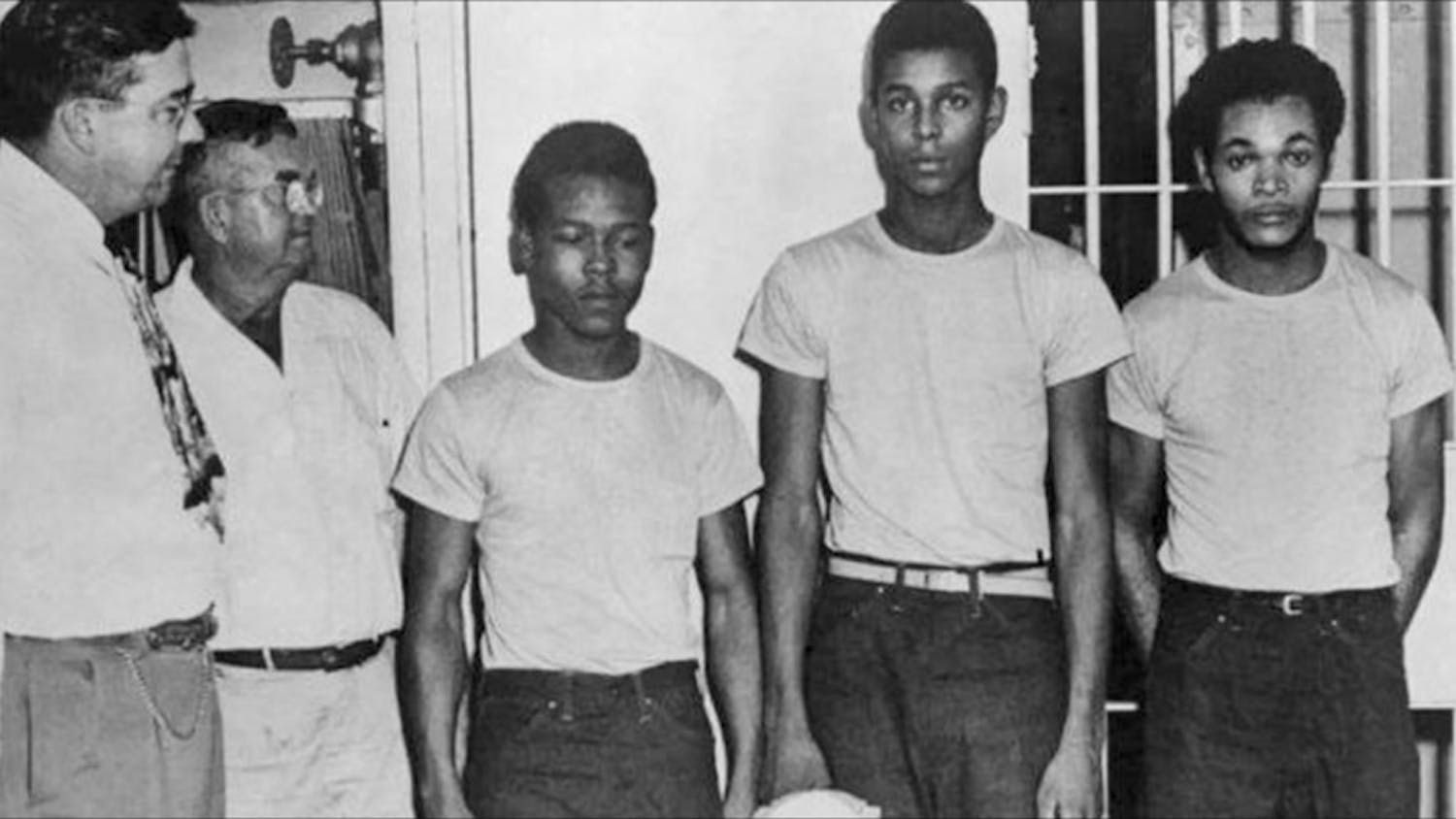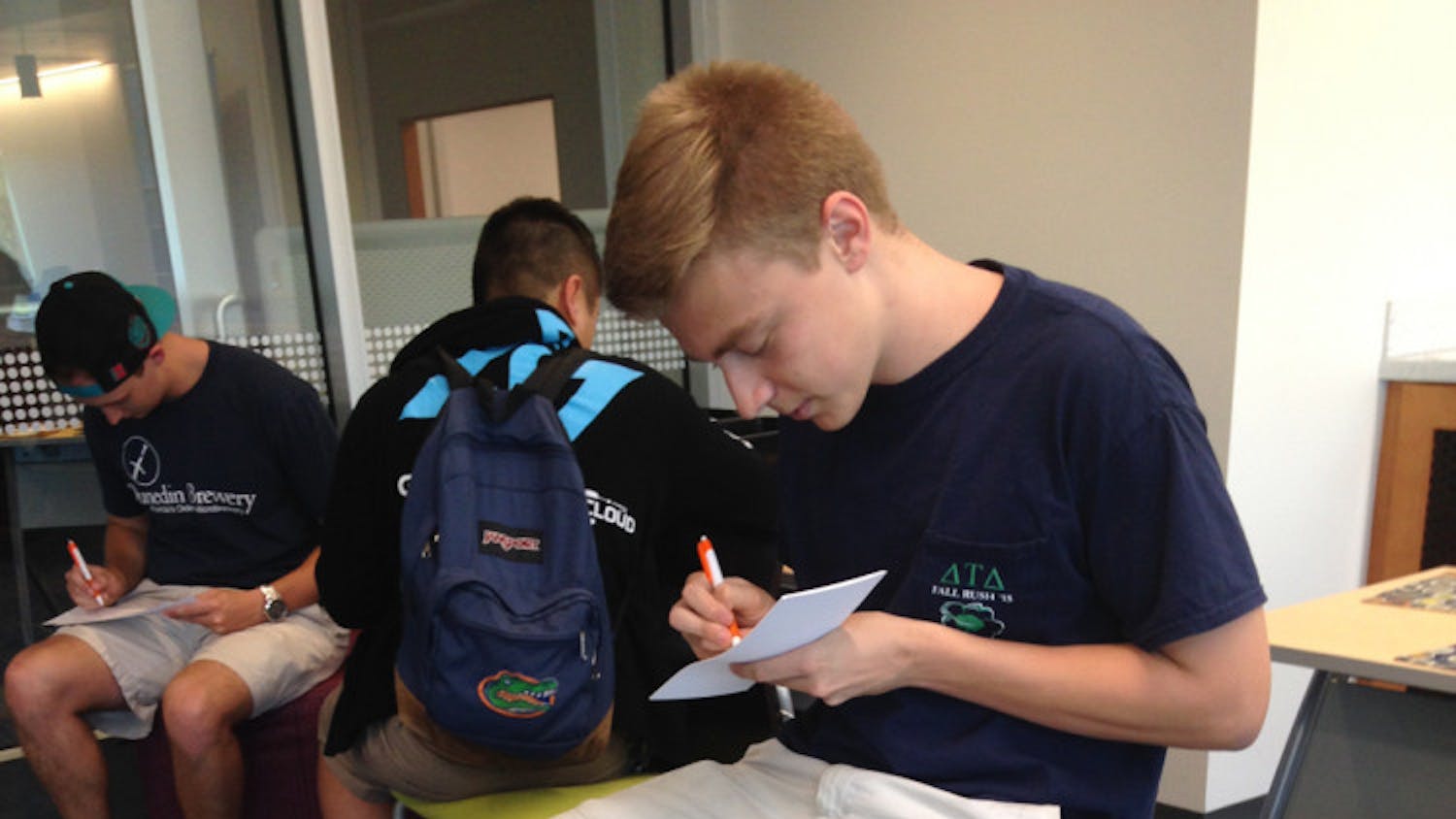Josh Venkataraman met Carol Greenlee, the daughter of one of the men he hopes to exonerate for a decades-old sexual assault case, on Thursday.
When they met for the first time, the two hugged at UF’s Levin College of Law before an event discussing the Groveland Four. Venkataraman, a UF telecommunication senior, has been collecting signatures to exonerate her father and three other boys accused of raping a 17-year-old white woman in 1949. The boys are known as the Groveland Four.
“It was a frozen moment,” Venkataraman said, about meeting Greenlee. “That was like ‘Wow, this is her. This is this person that’s up on a pedestal for me.’”
The 22-year-old said his petition has about 8,300 signatures. The families may have to wait until a bill reaches the Florida Legislature in February 2017 before knowing if the four will be exonerated.
If Gov. Rick Scott acknowledges Venkataraman’s petition anytime before then, the boys will have justice sooner, he said.
During the event, Gilbert King, the author of “Devil in the Grove: Thurgood Marshall, the Groveland Boys, and the Dawn of a New America,” discussed his book, which outlines events surrounding the boys’ arrests and the lack of evidence that convicted them.
King described the initial trial of Charles Greenlee, Samuel Shepard and Walter Irvin as a “travesty of justice.” The fourth boy, Ernest Thomas, was shot by a sheriff’s posse before trial.
Henrietta Irvin spoke to the crowd of around 70 about the day her brother was accused.
She was 16 when the boys were arrested in 1949. Henrietta, the younger sister of Walter Irvin, said she had just married Shepard’s brother.
“I didn’t know what to do because I was a kid,” she said. “It just broke my heart. I know he’s innocent.”
After Irvin and Shepard were sentenced to death in Groveland in Lake County, Florida, the U.S. Supreme Court ordered a retrial, King said. Lake County’s Sheriff at the time, Willis McCall, was driving the two men to their retrial in 1951 when he turned down a dirt road.
After McCall radioed for help, witnesses found Irvin and Shepard lying in a ditch, handcuffed and with multiple bullet wounds, King said. Henrietta Irvin’s brother was still alive; Shepard was not.
King said the FBI investigated the shooting after Walter Irvin claimed McCall shot both men in cold blood.
“One of the most horrifying things in all this research is that the report was sealed,” King said. “No one ever saw the results of these reports.”
Demarcus Merritt, a UF Housing and Residence Education area coordinator, said he attended the event to honor the Groveland Four’s legacy.
“It’s always a little painful to hear these stories,” the 34-year-old said. “I could have been this person; I can be this person.”
Contact Katelyn Newberg at knewberg@alligator.org and follow her on Twitter @k_newberg.





